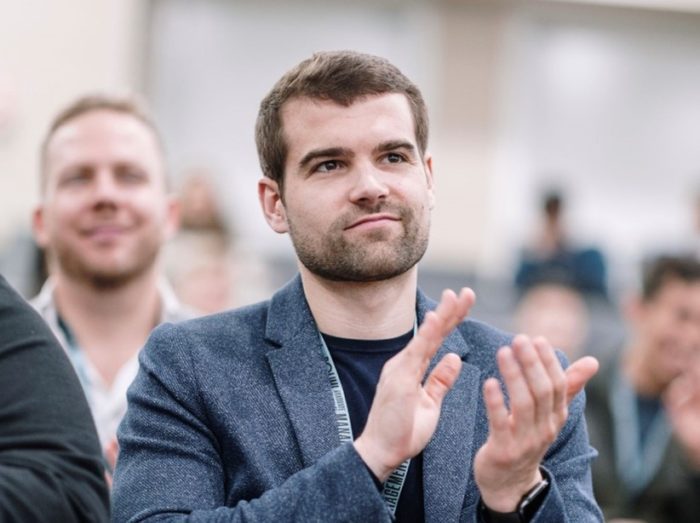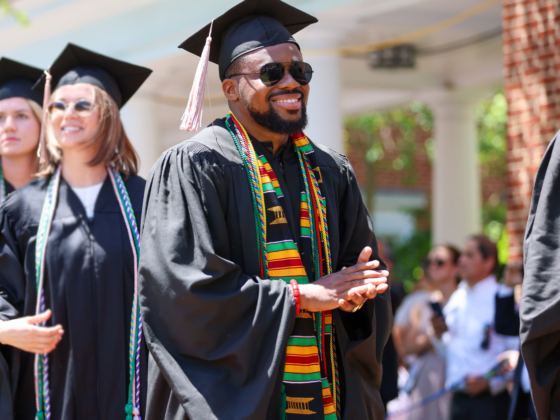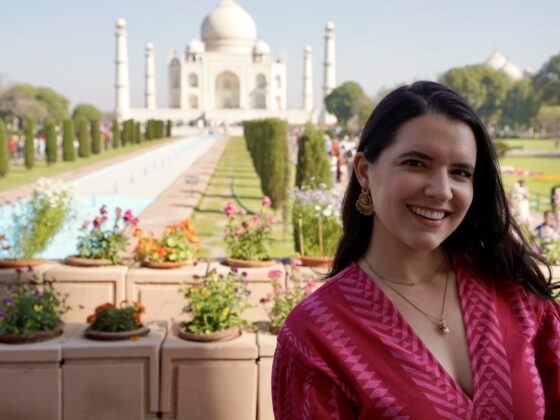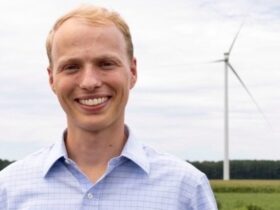Alex Federinko (Class of ’23) is currently a second-year Darden MBA student. Federinko started his time at Darden by securing one of Darden’s most prestigious MBA fellowships and becoming an Oculus Fellow. He also took a course in Germany focused on AI and robotics and spent his summer on Wall Street at Morgan Stanley. Year two at Darden began with Federinko being selected to attend the MBA World Summit in Milan, Italy. Alex is currently on exchange with Japan’s #1 MBA program, Hitotsubashi ICS, in Tokyo. For more information on Alex, check out his LinkedIn. Alex shared more about his global experiences with the Center for Global Initiatives. In his own words:
Alex, tell us about yourself!
Just a kid from Clymer, Pennsylvania. Most people know my love of Pittsburgh, which is where I spent most of my years including undergrad and the start of my career, but my roots are in this one-stop-light country town.
I spent most of my pre-MBA career at Deloitte, most recently in M&A in New York and global capital markets in London. Thereafter, I moved to the deal-making side of the house as Head of Deal Flow for an early-stage global venture fund, Newlin VC. At Newlin VC, I was sourcing all venture deals, speaking with founders, doing diligence, deciding where to invest, and making investments across the US and LATAM as well as our first investment in South Asia. This was a perfect role, allowing me to use the tangible and intangible skillsets I gathered through my years at Deloitte. Since we were a new fund, it also provided me the opportunity to be more entrepreneurial alongside the GP as we were building the fund and our portfolio. This global VC experience helped shape the next phase of my career, providing so much energy around creating a new vision within the investing space.
How did you hear about Darden and what were the deciding factors?
Honestly, I started doing what most people do when they want to grow at a top global MBA program – I pulled up the top 10 list from Bloomberg, Fortune, Economist, etc. So, there’s less of a “hearing” about Darden because it’s already top of mind for any MBA applicant since it’s one of the best. From there I focused on choosing a program with a very intentional community. Coming most recently from New York, I didn’t apply to either of the top programs in New York and I didn’t want to attend either of the top schools in Chicago or in any other big city for that matter. I love both of those cities (I’m a city boy at heart and I’m sure I would have found a great community at any school), but I don’t think you can build BOTH a wide and deep community of BOTH personal and professional relationships at a city school. In large cities, students tend to go to class and mostly scatter throughout the city after settling into their own comforts. So, knowing that any of these top schools would equally accelerate my career, Darden clearly set itself apart from the other top schools in the intentionality of the community. Whether it be through breakfast, lunch, dinner, class, gym, squash, golf, wineries, breweries, hikes, food festivals, travel, etc, the Darden community gives students about 20 months to be all-in on the total MBA experience. I have found no place that does this as well as Darden from the global student base to the global alumni to the professors (voted best professors 10 years in a row) to the broader UVA and Charlotteville community.
You recently had the opportunity to attend the MBA World Summit in Milan, Italy. Could you please tell us more about that experience? What was it like to be there and what did you take away?
The MBA World Summit was incredible. An annual summit sponsored by Germany-based Quarterly Crossing and a different global business school each year, the MBA World Summit brings together 100 MBAs selected through a competitive process for a 3-day conference. The Dean of the host school, Milan-based POLIMI Graduate School of Management, set the tone for this year’s conference on the first night’s panel session by saying “I’m not here to give lessons, but to share experiences,” and this sharing of experiences and constructive discussions around global perspectives and challenges is exactly what we did. Twenty-five delegates were selected to give an hour workshop on a topic of their choosing with the remaining delegates attending these Summit Laboratory Sessions which were of most interest to them. I personally dove deep on topics from enabling tech in emerging markets, to global collaboration on security technology, to rethinking social entrepreneurship, to a riveting discussion on gender equity roles in the workplace.
When you have 42 global MBA programs represented with folks of 38 nationalities, your thinking is challenged to a degree that is difficult to reach in any other setting and the conversations we had were incredibly enriching and motivational. This wide range of perspectives is so crucial for cross-border understanding and collaboration to reach our global business, political, and social goals.
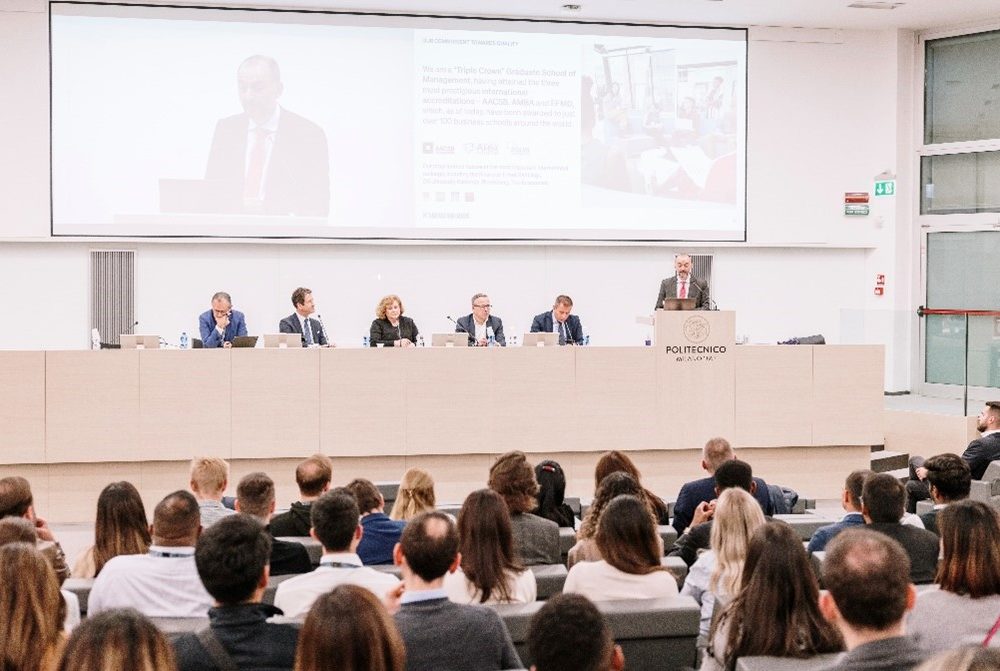
In addition to the Summit Laboratory Sessions, we heard from several CEOs on how they guide their global businesses and spent a day consulting with local nonprofit organizations to design solutions for their toughest challenges.
Having a very global career was always in the cards for me, but the summit pushed that to be a non-negotiable in whatever path I choose.
This spring, you headed to Tokyo, Japan for an exchange program. Why did you decide to go on exchange at Hitotsubashi ICS?
After starting my career in the U.S., living in London to work on capital market transactions with global teams across Europe, Russia, and the Middle East, and leading venture capital deals across North and South America at Newlin VC, I felt that Asia was a gap in my global understanding. And since Tokyo is such a globally significant city with Hitotsubashi being Japan’s #1 MBA program, it was a no-brainer for me.
Looking back, I would have regretted not taking the opportunity to dive deep into another country. Darden is full of incredible people and opportunities, and while I missed the community being abroad, the amount of personal and professional growth potential for me was too high to pass up. I want my life to be exceptionally global. Wherever my professional roles and my personal endeavors take me, having a global lens in what I do is very important to me and spending time in Japan was part of that mission.
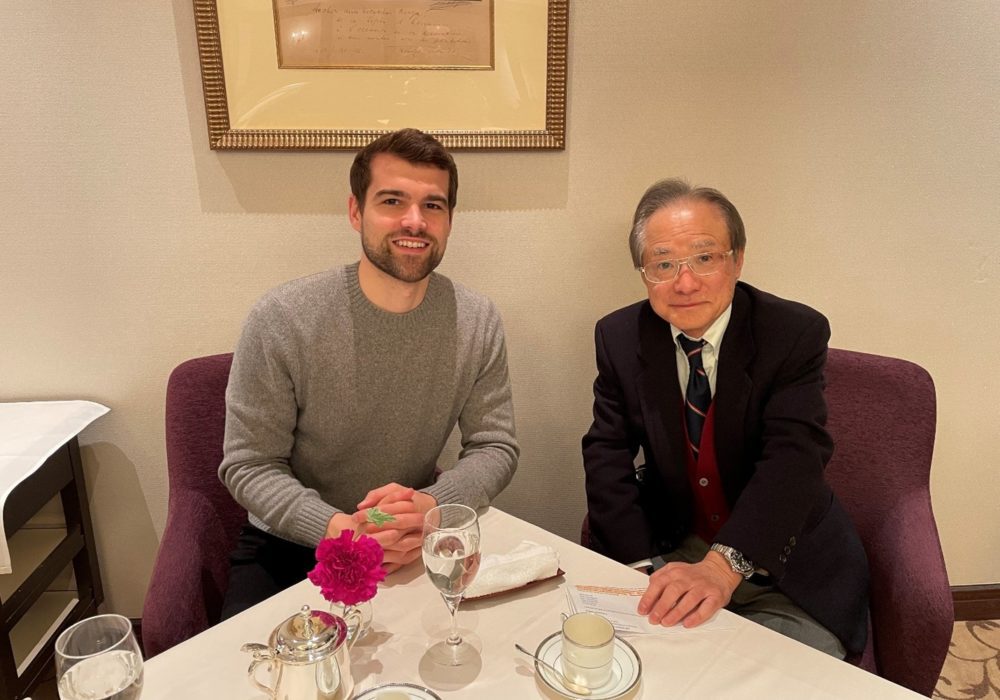
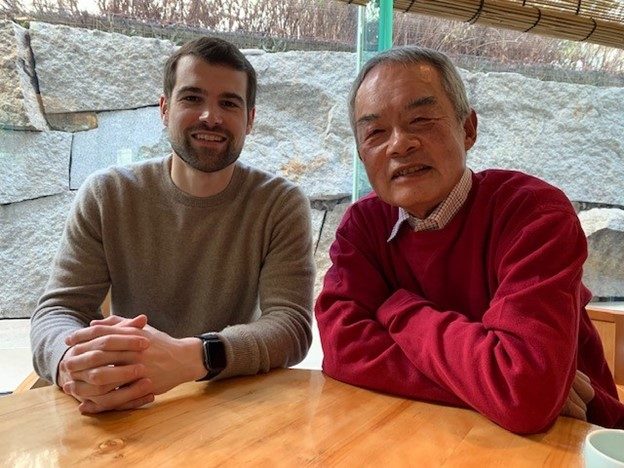
What has been the most influential or interesting aspects of living in Japan and joining the HIT community this spring?
There have been countless influential and interesting aspects about living in Japan, but when I take a step back a few key themes come to mind:
- Learning the business and geopolitics of Japan and rest of Asia. There are certain features of Japan and Asia that meet the surface when you pass through for a few days or when you catch headlines of western news outlets. Living in Japan, connecting with esteemed Darden alum, speaking with Asian business executives, and hearing a wide range of lectures from the former prime minister, Yoshihide Suga, to Binance co-founder and CEO, Changpeng Zhao, pushed the boundaries of what I formerly knew about Asia and provided rich perspective of the history, geopolitics, social contexts, and future prospects in the region. And for that I know I’ll become an even better executive as my career continues its global trajectory.
- Diversity of Hitotsubashi. While it’s physically in Japan, only 5 other MBAs were Japanese, so the demographic complexity was very interesting. Because of the sprinkling of folks from around the globe with a heavier index to Asian countries such as China, Philippines, Vietnam, Singapore, Indonesia, Taiwan, Malaysia, Myanmar, etc., the daily conversations provided perspectives and ideas that were much different from the predominant voices that I’m used to in the US.
- Discomfort. I’ve lived in Europe so spending more time there would have been “easy.” I’m a firm believer that growth comes when the uncomfortable starts becoming comfortable. Sure, Tokyo, is a global city, but the lack of familiarity with the country and region makes it a much less comfortable place for me to live. Navigating the lifestyle, culture, language barriers and other aspects of living in Japan just makes me more versatile and comfortable navigating new environments.
What draws you to global academic experiences? Why are global experiences so important to have as a future executive?
We live in a global world and that is not changing. A wide range of perspectives is so crucial for cross border understanding and collaboration to reach not just our global business goals, but also our political and social goals, and I want to play a part in these aspirations.
Having a one-dimensional or one-geographical mindset in our global economy won’t help me be the best advisor to growth stage companies. Collecting these lived experiences will allow me to provide a thinking and understanding that is just different from your average professional. I know I’m better equipped to dive into complex global issues or, at the very least, facilitate answers through my deep global connections from all the time I’ve spent abroad.

